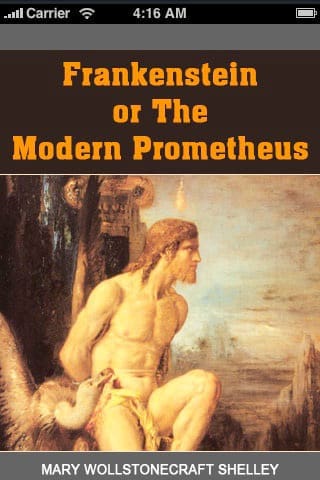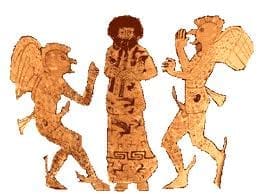 When did science fiction begin? It’s an interesting question. And as we decide where we’re going as practitioners of the genre, maybe we should think about where we came from.
When did science fiction begin? It’s an interesting question. And as we decide where we’re going as practitioners of the genre, maybe we should think about where we came from.
Many a hardcore fan will tell you that the backbone of science fiction is the written narrative. After all, Hugo Gernsback, generally acknowledged as the father of the genre–though he preferred the term “scientifiction” to “science fiction”–published magazines made up of short stories.
And if we go a little further back, there are the pulps, and before that Herbert George Wells and Jules Verne, and even further back Mary Shelley’s dark and disturbing cautionary tale, a little piece she subtitled The Modern Prometheus. Should we consider Gulliver’s Travels a piece of science fiction? How about Sir Francis Bacon’s New Atlantis, written a few short years after the English started their colony in Jamestown? We can argue until the cows come home (where were they, anyway, and what were they up to? Something to do with bovine-human hybridization?) about which of these works got the ball rolling, but one observation is inescapable: They were all written narratives.
Me, I’d argue that the first example of science fiction wasn’t any of these estimable artifices, and that it wasn’t a written narrative either. Ladies and gentlemen, exhibit A: The Birds.
 Not the Hitchcock movie, though that certainly has its place in science fiction lore as well. This is the comedy by Aristophanes, first performed at a festival in Dionysia in 414 B.C. (or so I’ve heard; I wasn’t present at the time, contrary to what some of you may be wondering). The Birds is about two Athenian citizens, Pisthetaerus and Euelpidies, who encourage the birds of the world to built an ideal society, which the Athenians call Cloudcuckooland. Groundbound humans are so impressed with the place that they forget to sacrifice to the Olympian gods, who visit Cloudcuckooland to protest. SPOILER ALERT: The Olympians fail and the bird society prevails.
Not the Hitchcock movie, though that certainly has its place in science fiction lore as well. This is the comedy by Aristophanes, first performed at a festival in Dionysia in 414 B.C. (or so I’ve heard; I wasn’t present at the time, contrary to what some of you may be wondering). The Birds is about two Athenian citizens, Pisthetaerus and Euelpidies, who encourage the birds of the world to built an ideal society, which the Athenians call Cloudcuckooland. Groundbound humans are so impressed with the place that they forget to sacrifice to the Olympian gods, who visit Cloudcuckooland to protest. SPOILER ALERT: The Olympians fail and the bird society prevails.
The word “utopia” wouldn’t exist for a couple of millennia, but that’s exactly what Cloudcuckooland was. It asked the essential “What if?” question–in this case, “What if we built a society from scratch?” And that’s what made it science fiction, as much so as Asimov’s Foundation or Blish’s Cities in Flight.
George Clooney as Pisthetaerus? Anthony Hopkins as Zeus (not such a stretch now that he’s played Odin)? John Malkovich as Prometheus, who tries to hide himself under a parasol at one point in the play? Okay, not likely. But The Birds unequivocally holds a historical place on the science fiction mantelpiece. And if you’re Aristophanes, that’s something (wait for it) worth crowing about.
